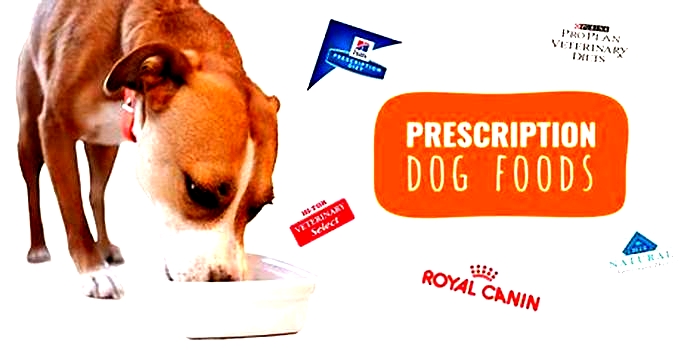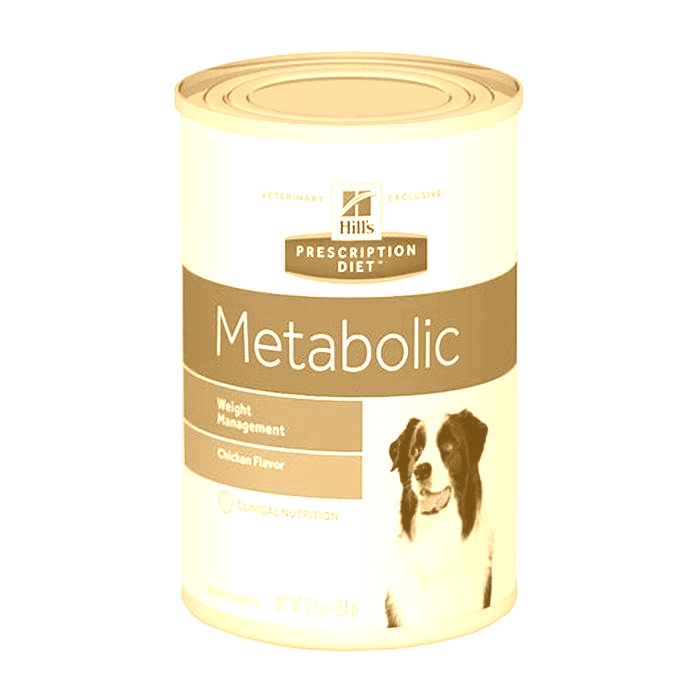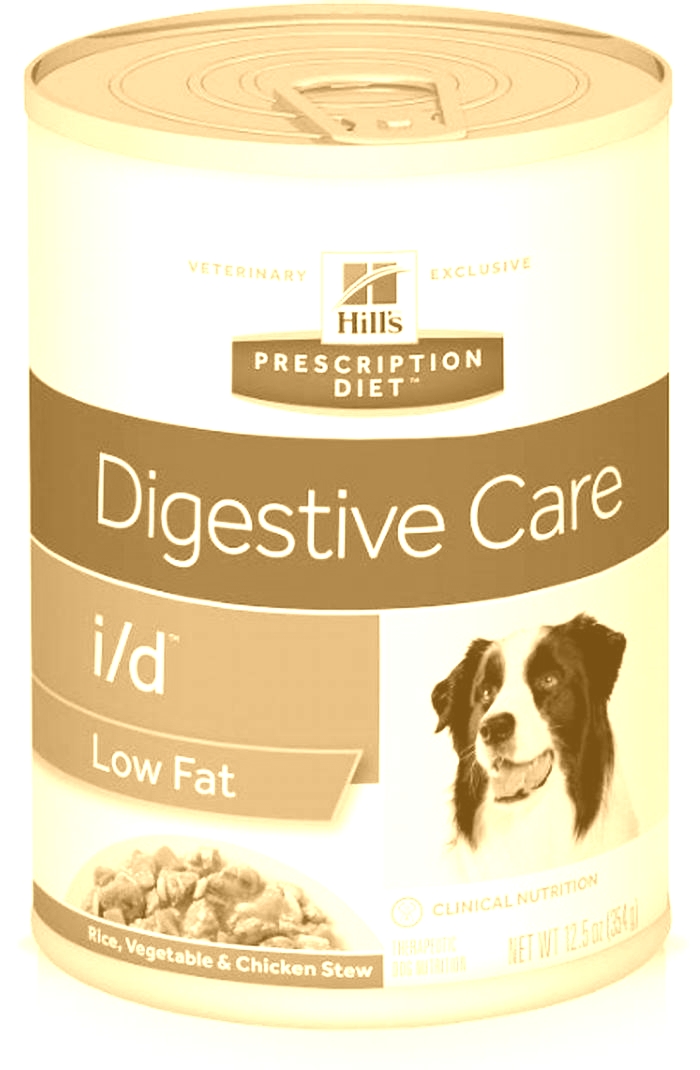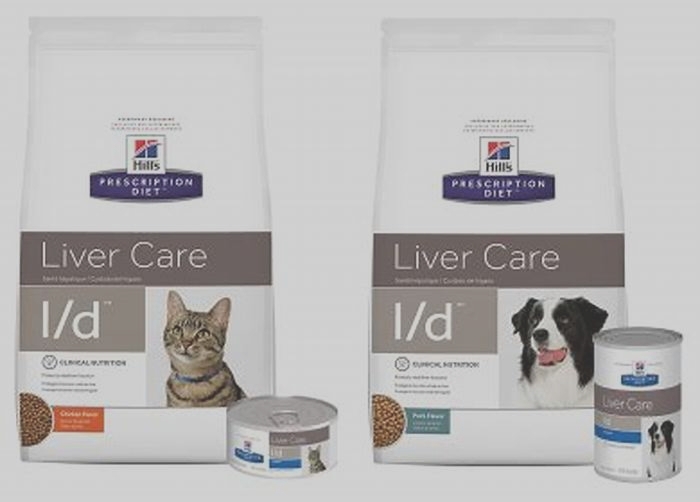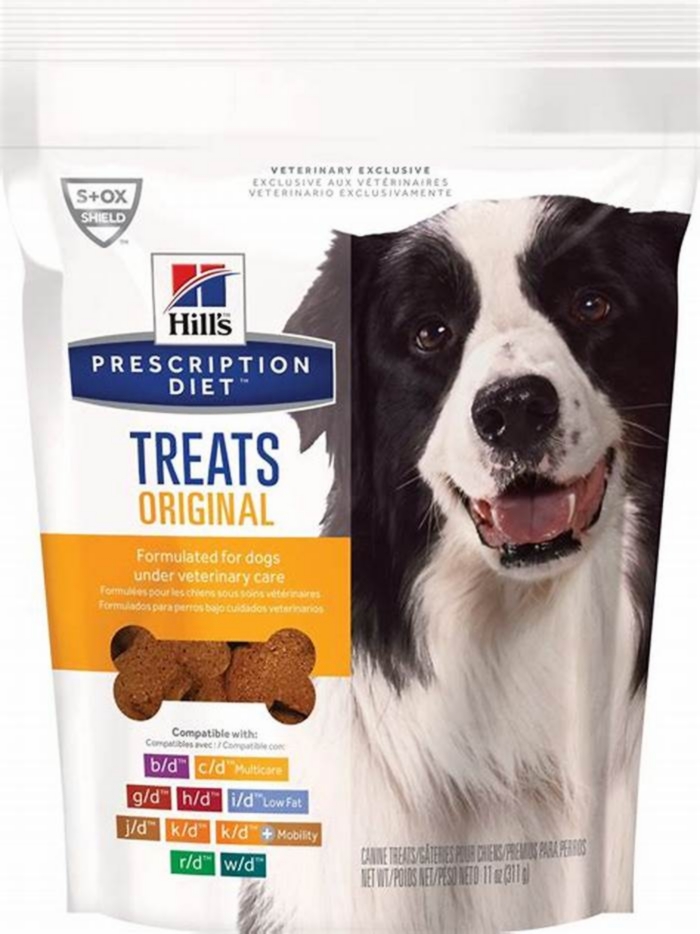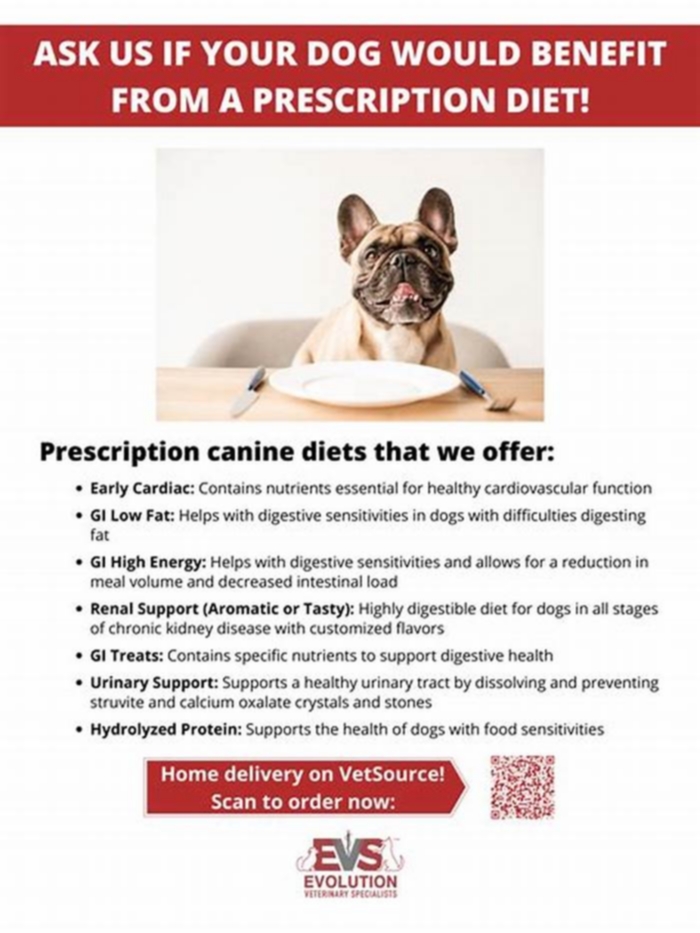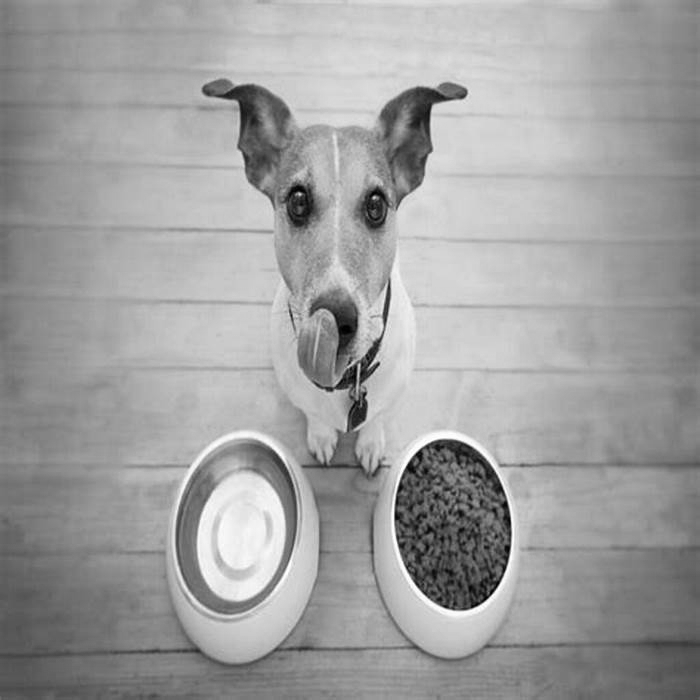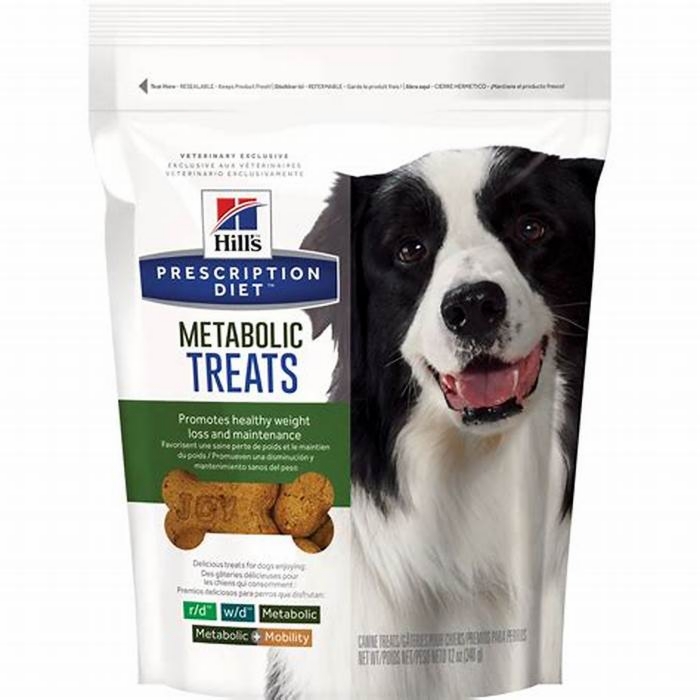Veterinary Recommended Canine Cuisine Exploring Hills Prescription Diets
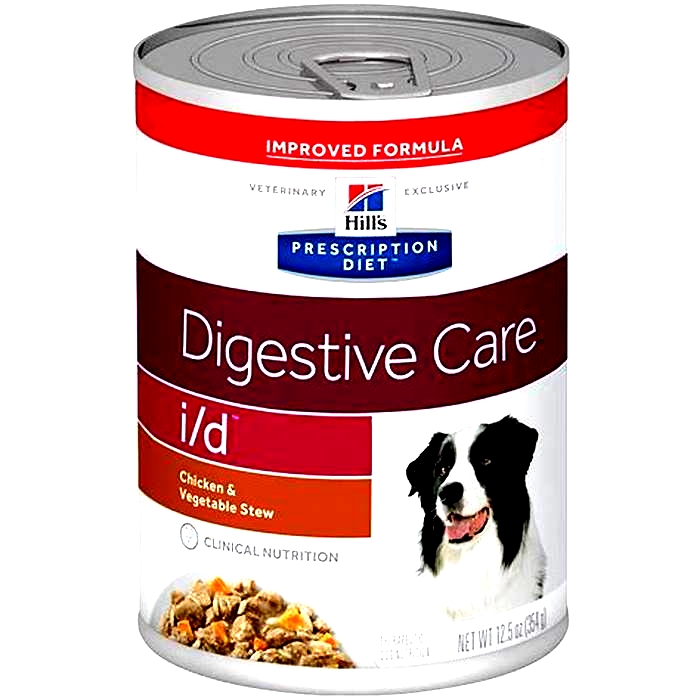
The Savvy VetTech

While most pets do well on any high-quality, over-the-counter commercial diet that is appropriate for their lifestage, some pets will benefit from a prescription diet. Prescription diets are specially formulated to mitigate a specific medical condition. These diets should be fed only under the supervision of a veterinarian; their formulation may not be appropriate for all pets.
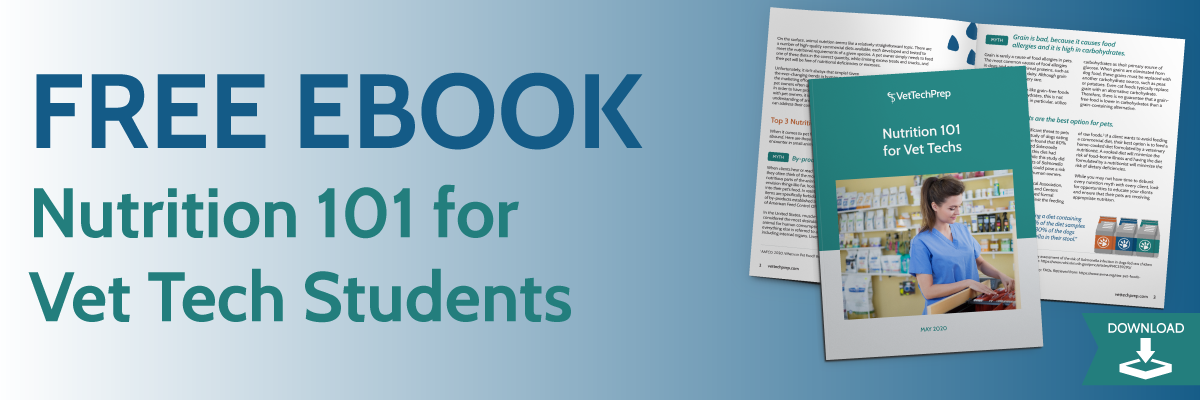
There are a number of companies that produce prescription veterinary diets. Royal Canin and Hills Prescription Diets are the most commonly-utilized diets in most veterinary practices, but Purina ProPlan Veterinary Diets and other manufacturers also produce prescription diets. While manufacturers differ slightly in which foods they produce and how these foods address a particular condition, they often offer comparable diets and the decision of which brand to use is ultimately up to the veterinarian.
The most common medical conditions addressed with prescription diets include the following:
Food Allergies
Pets with food allergies may experience either gastrointestinal signs or skin inflammation. Either type of food allergy can be treated with a prescription diet. There are two general categories of prescription diets used to manage food allergies, depending on the individual pets needs.
The most restrictive diets are hydrolyzed protein diets. These diets are processed in a manner that breaks dietary proteins into very small fragments, which are too small for the immune system to recognize. These diets are often beneficial for a food trial, but many clients find them expensive; therefore, they may not be practical for long-term feeding.
The other type of diet used to manage food allergies is limited-ingredient diets, formulated with protein sources that are less common. The use of a limited-ingredient diet to manage food allergies requires the owner to know which protein sources have been used in their pets previous diets, so that they can select a protein source that their pet has not been exposed to in the past. Prescription limited-ingredient diets are generally regarded as superior to over-the-counter limited-ingredient diets, because they are manufactured in a manner that minimizes the risk of cross-contamination.
Gastrointestinal Disease
Gastrointestinal diets are formulated to be highly digestible and low in fat and fiber. These characteristics minimize the effects of a variety of gastrointestinal diseases, including both acute and chronic conditions. In most small animal general practices, gastrointestinal diets are prescribed on a near-daily basis to manage acute colitis and gastroenteritis.
Hepatic Disease
Hepatic diets are formulated with low copper levels, moderate protein levels, and antioxidants to support liver function. Copper in hepatic diets is minimized for two reasons: some dogs develop liver disease secondary to copper accumulation (caused by a genetic abnormality), while other pets accumulate hepatic copper as a result of liver disease. Reducing dietary copper helps address both of these potential problems and is recommended for all pets with hepatic disease. Protein is limited to moderate levels, in order to minimize the metabolic load on the liver. Antioxidants reduce liver inflammation, which can slow the progression of disease.
Joint Disease
As dogs and cats age, they may be diagnosed with osteoarthritis or other joint diseases. Prescription diets contain glucosamine, chondroitin, omega-3 fatty acids, and antioxidants. Glucosamine and chondroitin improve the health of the pets cartilage, while omega-3 fatty acids and antioxidants decrease inflammation. Additionally, these diets are typically low in calories, combating weight gain that often accompanies age and mobility issues.
Renal Disease
Prescription renal diets are typically formulated to be calorie-dense, with low levels of protein, phosphorus, and sodium. These diets are also formulated to be rich in antioxidants and omega-3 fatty acids. Caloric density is important to offset the inappetance that is common in renal failure. Reduced protein levels decrease the filtration load on the kidney, reduced phosphorus delays the progression of kidney disease, and reduced sodium decreases the risk of hypertension. Antioxidants and omega-3 fatty acids reduce inflammation and limit ongoing damage within the kidney.
Urinary Health
In general, urinary diets serve two purposes: dissolution (of struvite stones) and prevention. Depending on the food manufacturer, the same diet may be used for both purposes or there may be two separate diets (one for dissolution, one for maintenance). Urinary diets used to address struvite and oxalate stones have low levels of magnesium, phosphorus, and calcium, all of which act as urinary stone precursors. Diets to prevent urate stones are formulated with low protein levels, which is the primary urate precursor. Urinary diets are also formulated to optimize urine pH and promote the production of dilute urine.
Weight Loss
Like over-the-counter weight loss diets, prescription weight loss diets are formulated with a low calorie content. The primary difference between prescription and over-the-counter weight loss diets, however, lies in the nutrient concentration. If a client reduces the quantity of their pets over-the-counter food drastically, to promote weight loss, the pet may experience deficiencies in certain nutrients. Prescription weight loss diets are formulated to provide higher levels of nutrients per calorie, to prevent deficiencies in pets consuming a low number of calories. Additionally, prescription foods may contain ingredients that increase a pets metabolic rate.
Talking to Clients About Prescription Diets
When recommending a prescription diet for a pet, take the time to explain the diet to your client. Clients are more likely to accept a diet recommendation if they understand why and how the diet will benefit their pet.
Additionally, provide your client with clear expectations. Is this diet intended for short-term or long-term feeding? Will they see an improvement in clinical signs, or is the diet intended to slow the progression or recurrence of disease? If an improvement in clinical signs is expected, how quickly should the improvement be seen?
Finally, encourage your client to ask questions. Ask them if they foresee any barriers to transitioning the food or to continuing on the food for as long as the veterinarian says is necessary. Brainstorm with the client to overcome as many concerns as possible, so that the client is less likely to give up if the food transition is not an easy one.
Setting realistic expectations and encouraging clients to ask questions can maximize the chances that your patient receives the therapeutic diet that it needs.
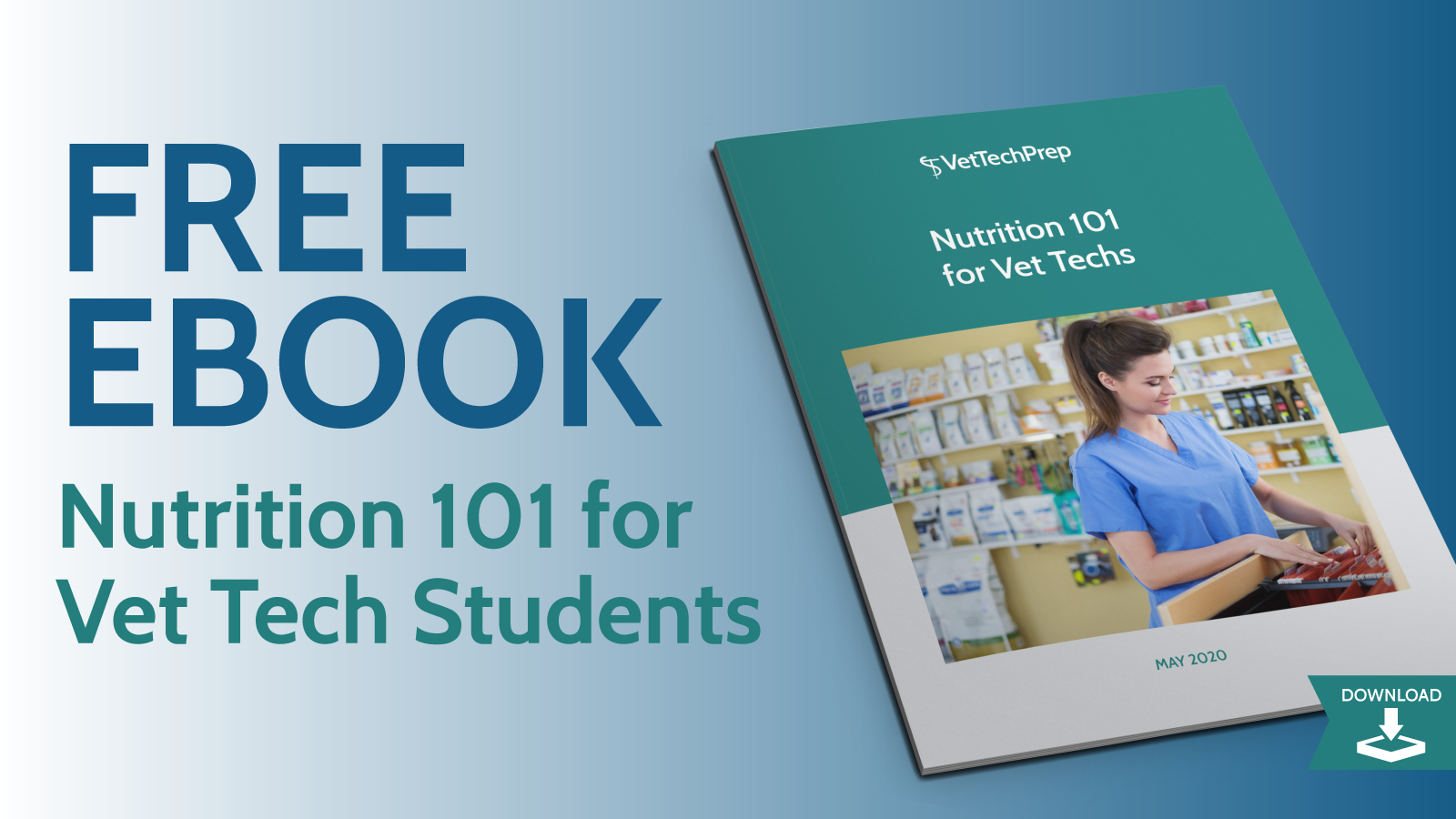
What are Veterinary Diets?
What are Veterinary Diets?
November 14, 2013|By David Jackson, AllAboutDogFood.co.uk
There's no doubt that diet can make an enormous difference to your dog's health so when he's ill, it's only right that your vet should suggest a diet change. Over the last decade or so, the 'veterinary' or 'prescription diet' has become the vet's food of choice but as we will see in this article, they might not be the best options for your dog or your wallet.

Veterinary foods are promoted as the ultimate in dietary therapy for your dog - so good in fact that only your vet can give it to you. The pristine packaging, the massive price tag, the fact that they are only available through vets, even the names 'Prescription Diets' and 'Veterinary Diets' all give the overwhelming impression that these are not mere foods but medicinal treatments and must, therefore, be the best choice for your sick dog. Unfortunately, in most cases, this couldn't be further from the truth.
The most important thing to realise is that the majority of veterinary diets are just standard pet foods. Most of them don't contain anything remotely medicinal and no prescription is required to buy them. They are only available through vets because the manufacturers choose not to sell them elsewhere. They could equally choose to sell them in pet stores, feed merchants or at car boot sales if they wanted to but that would damage the air of exclusivity they have worked so hard to create. I repeat, most prescription diets are just standard pet foods.
I say most because there are still a couple of instances where veterinary diets are probably the best choice. This isn't because they are good, nutritious foods (which they certainly are not) but because they contain a certain active ingredient or property that can make all the difference to dogs with certain problems. For example, for dogs with bladder stones (also known as uroliths) specific veterinary diets are able to make the urine more acidic in order to dissolve the stones. Clearly, no normal food is going to have this effect so if your dog has bladder stones, it would certainly be best to stick with your vet's suggested food, at least until your dog gets the all-clear. Another example is dogs with severe intolerance or allergies to a wide range of ingredients. Certain veterinary diets are scientifically tailored to remove or breakdown all potentially problematic molecules so that there is literally zero chance of it causing an upset. Again though, it is best only to use these kinds of foods short term until a safe, more nutritious food can be found.
Nevertheless, these are the exceptions to the rule. Out of all the hundreds of veterinary foods out there, only a handful can claim to have any real medicinal properties. The rest, as we will see, are little more than a collection of run-of-the-mill pet foods in shiny white packaging.
Example: Hill's i/dHill's Prescription Diet i/d is probably the most popular veterinary diet in the UK. Vets recommend it for all sorts of gastrointestinal disorders from colitis to pancratitis, IBD to bloat. According to Hill's, it is ideal for these sorts of problems because of its high digestibility, low fat content and its high level of fibre. It also contains electrolytes to help replace losses caused by vomitting and diarrhoea and antioxidants to neutralise free radicals. That all sounds great but actually there's really nothing unique about it. The market is awash with digestible, low fat, high fibre foods. Electrolytes (sodium, potassium, chloride, and bicarbonate) are found in abundance in any complete dog food and antioxidants have to be added to dry dog food to stop it going rancid immediately after production. So, contrary to what your vet might tell you, Hill's i/d is just one of many diets that might fit the bill for a dog with digestive upsets but, as we will see from the ingredients, it certainly isn't the best. Hills i/d dry ingredients: Ground MaizeClick to see what we think about Maize / Corn in dog food, Ground RiceClick to see what we think about Rice - White in dog food, Dried Whole EggClick to see what we think about Egg in dog food, ChickenClick to see what we think about Chicken in dog food and Turkey MealClick to see what we think about Turkey in dog food, Maize Gluten MealClick to see what we think about Maize Gluten in dog food, DigestClick to see what we think about Digest in dog food, Dried Beet PulpClick to see what we think about Sugar Beet in dog food, Animal FatClick to see what we think about Unspecified Animal fats in dog food, Vegetable OilClick to see what we think about Vegetable Oil in dog food, Calcium CarbonateClick to see what we think about Calcium Carbonate in dog food, FlaxseedClick to see what we think about Linseed in dog food, Potassium Citrate, SaltClick to see what we think about Salt in dog food, Potassium ChlorideClick to see what we think about Potassium Chloride in dog food, Dicalcium PhosphateClick to see what we think about Calcium Phosphate in dog food, TaurineClick to see what we think about Taurine in dog food, L-Tryptophan, Vitamins and Trace ElementsClick to see what we think about Vitamins and Minerals in dog food. Contains EU Approved AntioxidantClick to see what we think about Artificial Preservatives in dog food. It doesn't take a nutritionist to tell you that this is not a great food, but I'm going to anyway. The first, and therefore most abundant ingredient in Hill's i/d is maize - a grain that has become increasingly associated with dietary intolerance and actually causing digestive upsets. Add in the second ingredient rice and the added maize gluten further down and it's clear that i/d is a very grain heavy food. As dogs are primarily designed for digesting meat, this is not the best characteristic for a food to aid digestion. Meat, in fact, is only the 4th ingredient on the list and since the percentage isn't specified, the actual amount in the food could be very low indeed. The remaining ingredients really aren't anything to write home about either - digest, unidentified animal fats, added salt and even artificial antioxidants - all hallmarks of a low grade food. All of this adds up to the fact that Hill's i/d is a pretty bad dog food - by our standards, it scores just 1.8 out of 5 and yet your vet will charge you upwards of 60 for a 12kg bag! |
The story is the same for just about all of the veterinary diet ranges out there:
- Hill's r/d dry for overweight dogs: 2.4 out of 5
- Hill's j/d dry for joint support: 1.7 out of 5
- Hill's t/d dry for oral hygiene: 1.8 out of 5
- Royal Canin Anallergenic dry for reducing intolerances: 1.4 out of 5
- Royal Canin Dental dry: 2.0 out of 5
- Royal Canin Gastro Intestinal dry: 2.1 out of 5
- Purina HA Hypoallergenic: 1.2 out of 5
- Purina EN Gastroenteric dry: 2.0 out of 5
- Purina OM Overweight Management 1.2 out of 5
So why do vets sell veterinary diets?
There are several reasons why prescription diets have become so prominent within the veterinary industry: Firstly, as disillusioning as it might be, many vets just don't know any better. Nutrition makes up a very small part of veterinary training and of the few modules that are available, many are 'sponsored' by the manufacturers of veterinary diets themselves. Veterinary undergraduates learn that a dog suffering from condition x must be fed veterinary diet y. Other brands and feeding philosophies just don't get a look in so by the time newly graduated vets join their first vet practice, veterinary diets really are the extent of their dog food knowledge.
Then, of course, there's the money. Veterinary diets are incredibly expensive, the markup for the vet practice is huge and since you can't get them elsewhere, it makes good business sense for a vet to get you on to them. The manufacturers and distributors of the veterinary diets also offer massive cash incentives to practices that meet their sales targets - so large in fact that winning or losing the bonus can make a considerable difference to a practice's prosperity. With so much at stake, it's no surprise to find vets pushing veterinary diets so vigorously.
The Golden Rule
These days, specialist veterinary diets are available for everything from obesity to 'brain ageing' (whatever that is). The golden rule: if your dog is overweight or has problems with his teeth, digestion, joints or skin, he does not need a veterinary diet, he just needs a good diet - in fact, there are dozens of 'normal' foods that will probably be far more beneficial at half the price. You can use our Dog Food Directory to find the best food for your dog.
Prescription diet alternatives
Even a lot of more serious conditions like heart problems, diabetes, kidney disease and liver disease can arguably be managed just as effectively on some normal foods as on veterinary diets. The table below shows some of the biggest selling prescription diets and the characteristics that apparently make them uniquely suitable for dogs with particular health problems. As you can see, there is nothing extraordinary about any of these prescription foods - no medicines or active ingredients at all and every nutritional characteristics that they do have (like being highly digestible or low in fat for example) can be found in other over-the-counter foods at a fraction of the price.
| Category of illness | Condition | Top vet diets | Nutritional characteristics |
| Gastro Intestinal | Gastritis / enteritis / IBD / colitis / EPI / Pancreatitis | Hill's i/dRoyal Canin Gastro IntestinalPurna EN Gastroenteric | High digestibilityHypoallergenicLow fatHigh fibre |
| Diabetes | Diabetes Melitus | Hill's r/dRoyal Canin Diabetic Dog DS37Purina DCO Dual Fibre Control | High fibreNo added sugars |
| Kidney | Chronic kidney disease | Hill's k/dRoyal Canin RenalPurina NF Kidney Function | Low phosphorusLow sodiumHigh fibre |
| Urinary stones / crystals | Urate / cystine / oxalate - prevention only | Hill's u/dRoyal Canin Renal | Low protein (high quality)Low calciumLow nucleic acidsLow phosphorusLow Sodium |
| Struvite / calcium phosphate - prevention only | Hill's c/dRoyal Canin S/O | Low protein (high quality)Low magnesiumLow phosphorus | |
| Liver | Liver disease | Hill's l/dRoyal Canin Hepatic | Low protein (high quality)Low copperHigh fibreLow sodium |
| Heart | Heart disease | Hill's h/dRoyal Canin Cardiac | Low sodiumHigh taurine / l-carnitine |
The bottom line
Vets are there to help so we certainly recommend following their advice in all aspects of your dog's health but when it comes to diet, it's always best to ask a few questions. If your vet suggests moving to a veterinary diet (or any other diet for that matter), make sure you ask them why. Don't take "because it's specially designed for dogs with this condition" as an answer - we need specifics. If there's a genuine reason why that food would be the best choice for your dog, then go for it. If not, look for alternatives and if in doubt, get in touch.

